
Remote Denial of Service attack in Pure-FTPd 1.0.48
Overview : Pure-FTPd 1.0.48 allows remote attackers to prevent legitimate server use by making enough connections to exceed the connection

Overview : Pure-FTPd 1.0.48 allows remote attackers to prevent legitimate server use by making enough connections to exceed the connection

Overview : Remote Code Execution in CMSUno 1.6.2 Affected Product(s) : Version: 1.6.2 Vulnerability Details : CVE ID : CVE-2020-25538
Overview : In Rockwell Automation RSLinx Classic versions 4.1.00 and prior, an authenticated local attacker could modify a registry key,

Overview : Accentis Content Resource Management System versions released prior to the October 2015 patch suffer from a remote SQL

Overview : Philips Taolight Smart Wi-Fi Wiz Connected LED Bulb API Flaws Affected Product(s) : Philips Taolight Smart Wi-Fi Wiz

Overview : vBulletin 5.x through 5.5.4 allows remote command execution via the widgetConfig[code] parameter in an ajax/render/widget_php routestring request. Affected
Linux LibreOffice is under attack to a remote code-execution vulnerability and unauthorized-access vulnerability. Attackers use these issues to execute arbitrary
Scapy was found to be prone to Remote Denial of Service Vulnerability. An attacker can make use of this issue
Palo Alto networks was found to be prone to multiple remote code execution vulnerabilities. An attacker can exploit this issue

The vulnerabilities are dependent on one another; exploitation of one of the vulnerabilities is required to exploit the other vulnerability.
Details about the vulnerabilities are as follows:
Cisco Finesse and Cisco Virtualized Voice Browser OpenSocial Gadget Editor Unauthenticated Access Vulnerability
A vulnerability in the web management interface of Cisco Finesse and Cisco Virtualized Voice Browser could allow an unauthenticated, remote attacker to access the OpenSocial Gadget Editor without providing valid user credentials.
The vulnerability is due to missing authentication for a specific section of the web-based management interface. An attacker could exploit this vulnerability by accessing a crafted URL. A successful exploit could allow the attacker to obtain access to a section of the interface, which they could use to obtain potentially confidential information and create arbitrary XML files.
Cisco has released software updates that address this vulnerability. There are no workarounds that address this vulnerability.
CVE ID: CVE-2021-1246Bug ID(s): CSCvs52916, CSCvw27957Security Impact Rating (SIR): MediumCVSS Base Score: 6.5CVSS Vector: CVSS:3.1/AV:N/AC:L/PR:N/UI:N/S:U/C:L/I:L/A:N
Cisco Finesse OpenSocial Gadget Editor Cross-Site Scripting Vulnerability
A vulnerability in the web-based management interface of Cisco Finesse could allow an unauthenticated, remote attacker to conduct a cross-site scripting (XSS) attack against a user of the interface.
The vulnerability exists because the web-based management interface does not properly validate user-supplied input. An attacker could exploit this vulnerability by persuading a user of the interface to click a crafted link. A successful exploit could allow the attacker to execute arbitrary script code in the context of the interface or access sensitive, browser-based information.
Cisco has released software updates that address this vulnerability. There are no workarounds that address this vulnerability.
CVE ID: CVE-2021-1245Bug ID(s): CSCvs52916Security Impact Rating (SIR): MediumCVSS Base Score: 6.1CVSS Vector: CVSS:3.1/AV:N/AC:L/PR:N/UI:R/S:C/C:L/I:L/A:N

The vulnerabilities are not dependent on one another. Exploitation of one of the vulnerabilities is not required to exploit another vulnerability. In addition, a software release that is affected by one of the vulnerabilities may not be affected by the other vulnerabilities.Several of the vulnerabilities below only impact Cisco SD-WAN vManage Software that is operating in a cluster. Customers can verify whether the software is operating in cluster mode by checking the Cisco SD-WAN vManage web-based management interface Administration > Cluster Management view. Customers should also refer to the Cisco SD-WAN Getting Started Guide chapter on Cluster Management.
Details about the vulnerabilities are as follows:
CVE-2021-1468: Cisco SD-WAN vManage Cluster Mode Unauthorized Message Processing Vulnerability
A vulnerability in a messaging service of Cisco SD-WAN vManage Software when operating in cluster mode could allow an unauthenticated, remote attacker to send unauthorized messages to the vulnerable application.
This vulnerability is due to improper authentication checks on user-supplied input to an application messaging service. An attacker could exploit this vulnerability by submitting crafted input to the service. A successful exploit could allow the attacker to call privileged actions within the affected system, including creating new administrative level user accounts.
Cisco has released software updates that address this vulnerability. There are no workarounds that address this vulnerability.
Bug ID(s): CSCvu28454CVE ID: CVE-2021-1468Security Impact Rating (SIR): CriticalCVSS Base Score: 9.8CVSS Vector: CVSS:3.1/AV:N/AC:L/PR:N/UI:N/S:U/C:H/I:H/A:H
CVE-2021-1505: Cisco SD-WAN vManage Cluster Mode Privilege Escalation Vulnerability
A vulnerability in the web-based management interface of Cisco SD-WAN vManage Software when operating in cluster mode could allow an authenticated, remote attacker to bypass authorization checking and gain elevated privileges within an affected system.
This vulnerability exists because the affected software does not perform authorization checks on certain operations. An attacker could exploit this vulnerability by sending crafted requests to the affected system. A successful exploit could allow the attacker to bypass authorization checks and gain elevated privileges within the affected system.
Cisco has released software updates that address this vulnerability. There are no workarounds that address this vulnerability.
Bug ID(s): CSCvu28390CVE ID: CVE-2021-1505Security Impact Rating (SIR): CriticalCVSS Base Score: 9.1CVSS Vector: CVSS:3.1/AV:N/AC:L/PR:H/UI:N/S:C/C:H/I:H/A:H
CVE-2021-1508: Cisco SD-WAN vManage Cluster Mode Unauthorized Access Vulnerability
A vulnerability in the web-based management interface of Cisco SD-WAN vManage Software when operating in cluster mode could allow an authenticated, remote attacker to bypass authorization checking and make application modifications that could allow the attacker to gain elevated privileges within an affected system. This vulnerability exists because the affected software does not perform authorization checks on certain operations. An attacker could exploit this vulnerability by sending crafted requests to the affected system. A successful exploit could allow the attacker to bypass authorization checks and gain elevated privileges within the affected system. Cisco has released software updates that address this vulnerability. There are no workarounds that address this vulnerability.
CVE ID: CVE-2021-1508
Security Impact Rating (SIR): High
CVSS Base Score: 8.1
CVSS Vector: CVSS:3.1/AV:N/AC:L/PR:L/UI:N/S:U/C:H/I:H/A:N
CVE-2021-1275: Cisco SD-WAN vManage Denial of Service Vulnerability
A vulnerability in an API of Cisco SD-WAN vManage Software could allow an unauthenticated, remote attacker to cause a DoS condition on an affected system.
The vulnerability is due to insufficient handling of API requests to the affected system. An attacker could exploit this vulnerability by sending a large amount of API requests to the affected system. A successful exploit could allow the attacker to cause a DoS condition on the affected system.
Cisco has released software updates that address this vulnerability. There are no workarounds that address this vulnerability.
Bug ID(s): CSCvv67264CVE ID: CVE-2021-1275Security Impact Rating (SIR): HighCVSS Base Score: 7.5CVSS Vector: CVSS:3.1/AV:N/AC:L/PR:N/UI:N/S:U/C:N/I:N/A:H
CVE-2021-1506: Cisco SD-WAN vManage Cluster Mode Unauthorized Services Access Vulnerability
A vulnerability in a service of Cisco SD-WAN vManage Software when operating in cluster mode could allow an authenticated, remote attacker to gain unauthorized access to services within an affected system. This vulnerability exists because the affected software does not perform authorization checks on service access. An attacker could exploit this vulnerability by sending crafted requests to the affected system. A successful exploit could allow the attacker to bypass authorization checks and gain unauthorized access to services within the affected system. Cisco has released software updates that address this vulnerability. There are no workarounds that address this vulnerability.
Bug ID(s): CSCvu28402CVE ID: CVE-2021-1506Security Impact Rating (SIR): HighCVSS Base Score: 7.2CVSS Vector: CVSS:3.1/AV:N/AC:L/PR:H/UI:N/S:U/C:H/I:H/A:H

Description Server-Side Request Forgery in URL Mapper in Arctic Security’s Arctic Hub versions 3.0.1764-5.6.1877 allows an unauthenticated remote attacker to

Description IBM Cognos Analytics 11.2.0 through 11.2.4 FP4 and 12.0.0 through 12.0.4 is vulnerable to an Expression Language (EL) Injection
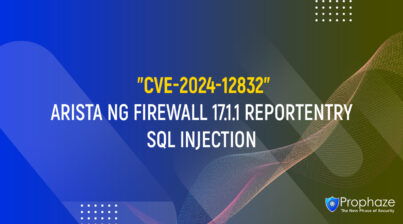
Description Arista NG Firewall ReportEntry SQL Injection Arbitrary File Read and Write Vulnerability. This vulnerability allows remote attackers to create
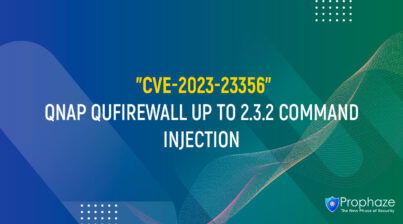
Description A command injection vulnerability has been reported to affect several QNAP operating system versions. If exploited, the vulnerability could
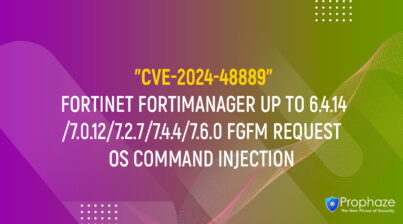
Description An Improper Neutralization of Special Elements used in an OS Command (‘OS Command Injection’) vulnerability [CWE-78] in FortiManager version
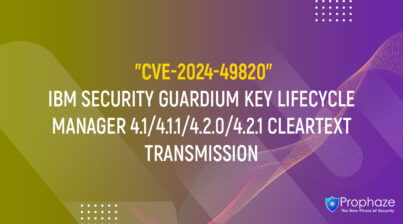
Description IBM Security Guardium Key Lifecycle Manager 4.1, 4.1.1, 4.2.0, and 4.2.1 could allow a remote attacker to obtain sensitive

Description File Upload vulnerability in Best courier management system in php v.1.0 allows a remote attacker to execute arbitrary code
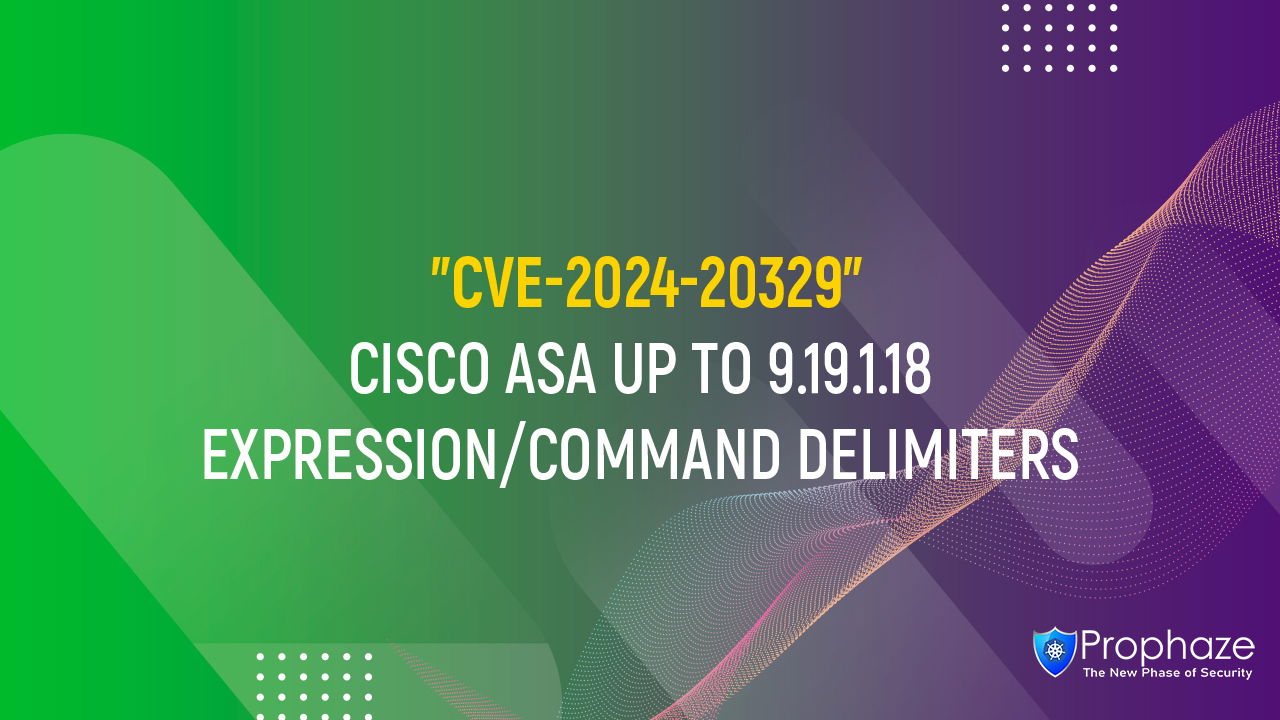
Description A vulnerability in the SSH subsystem of Cisco Adaptive Security Appliance (ASA) Software could allow an authenticated, remote attacker
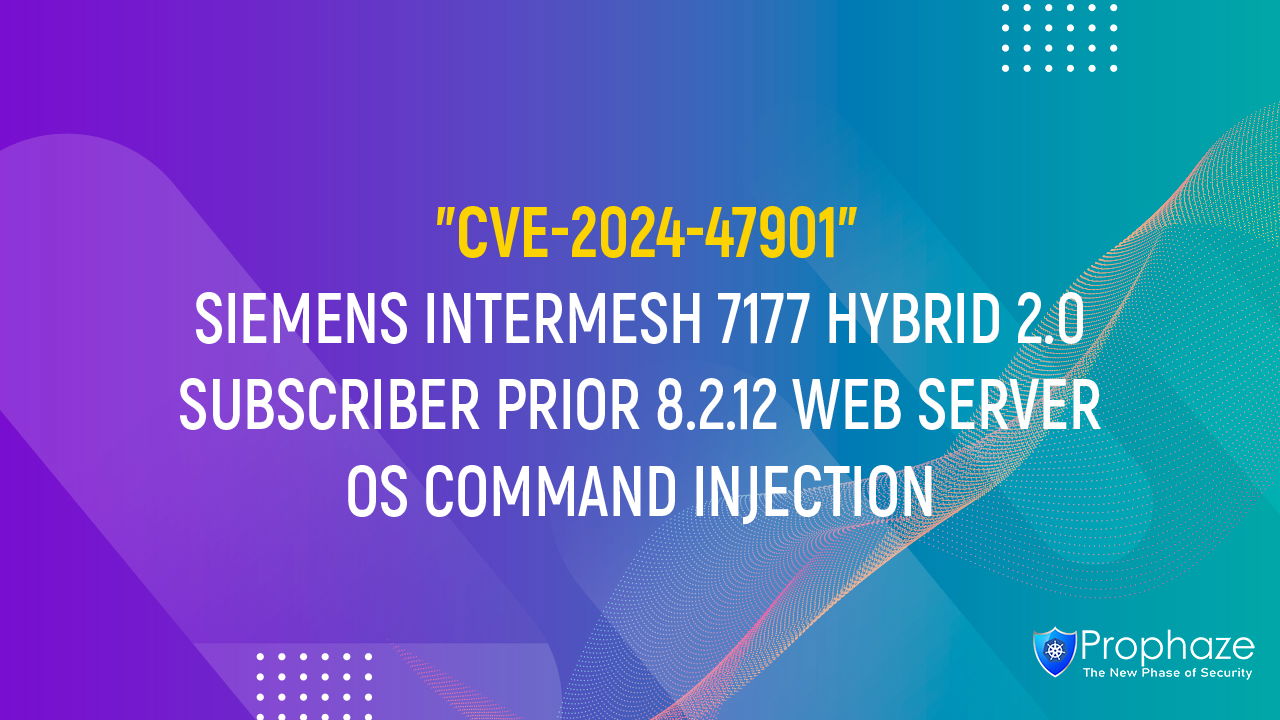
Description A vulnerability has been identified in InterMesh 7177 Hybrid 2.0 Subscriber (All versions < V8.2.12), InterMesh 7707 Fire Subscriber
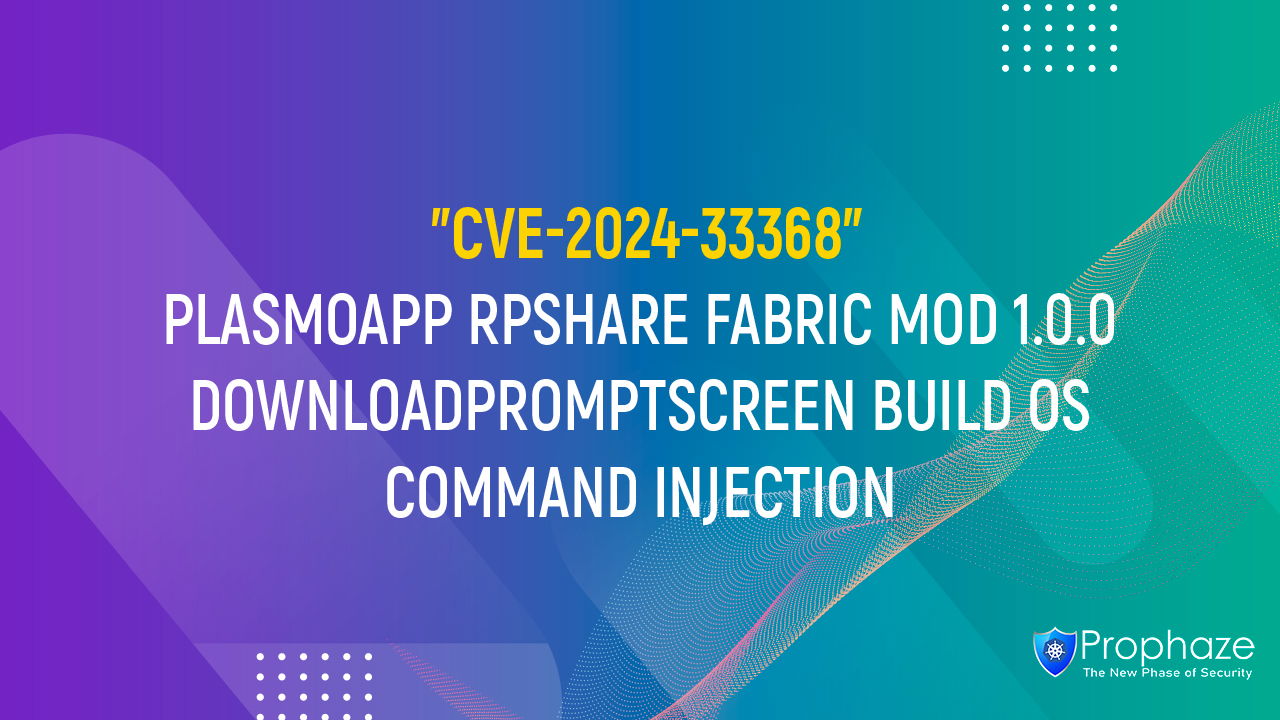
Description An issue in Plasmoapp RPShare Fabric mod v.1.0.0 allows a remote attacker to execute arbitrary code via the build
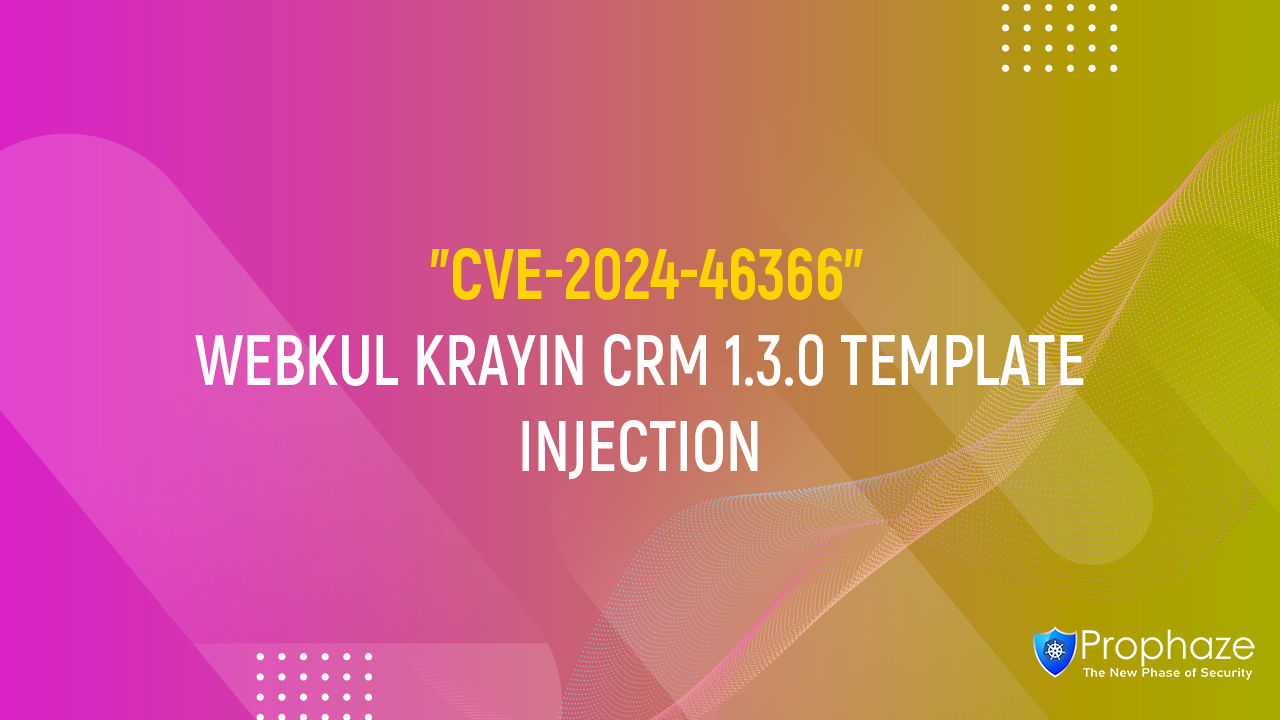
Description A Client-side Template Injection (CSTI) vulnerability in Webkul Krayin CRM 1.3.0 allows remote attackers to execute arbitrary client-side template
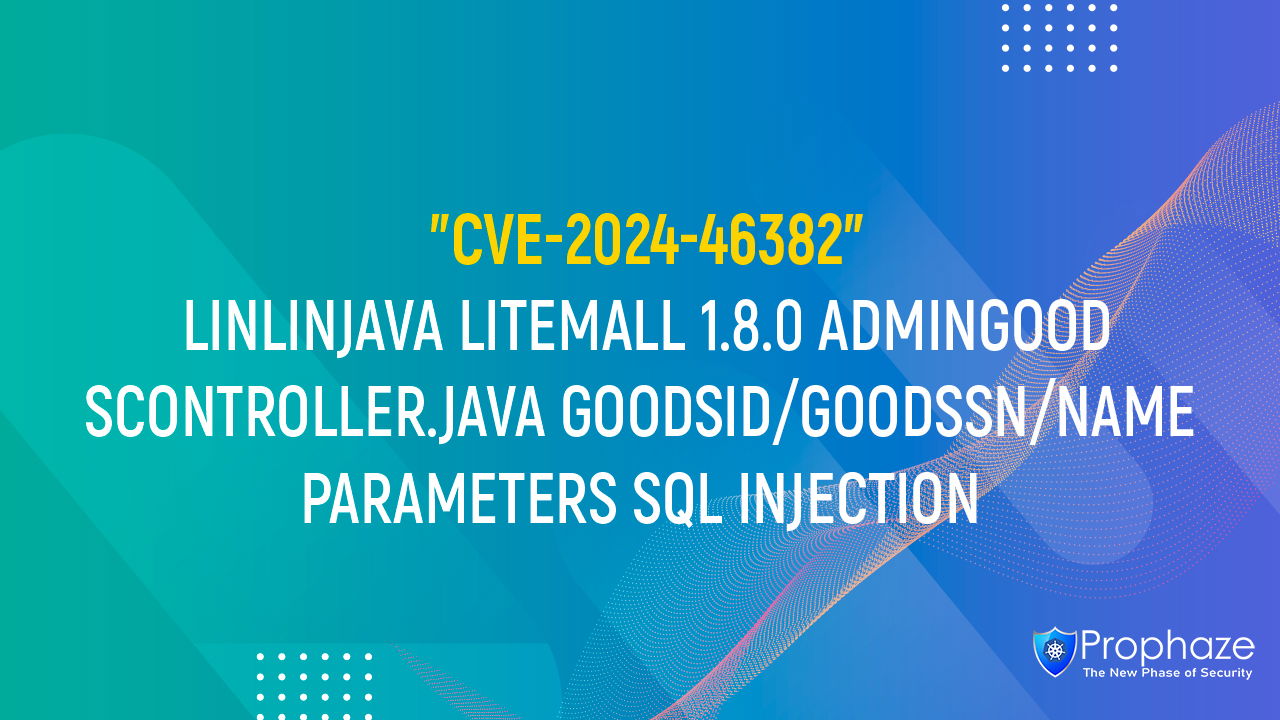
Description A SQL injection vulnerability in linlinjava litemall 1.8.0 allows a remote attacker to obtain sensitive information via the goodsId,